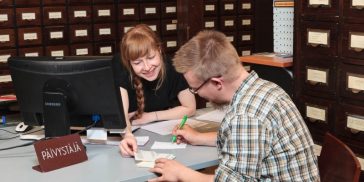
Ethical guidelines for intangible cultural heritage
The UNESCO Convention for the Safeguarding of the Intangible Cultural Heritage was adopted in 2003. The convention currently includes 178 states. At its core are the communities, groups, and individuals who practice traditions. They are the ones who determine what is important and worth preserving. The responsibility for safeguarding intangible cultural heritage lies with those who practice, transmit, and renew these traditions. The ethical principles associated with the convention provide further details about its fundamental tenets.
Ethical Principles for Safeguarding of Intangible Cultural Heritage
The ethical principles for safeguarding of intangible cultural heritage were developed in the spirit of the UNESCO Convention for the Safeguarding of Intangible Cultural Heritage, adopted in 2003, as well as existing international normative documents protecting human rights and the rights of indigenous peoples. They represent a series of general, aspirational, and widely accepted operational principles for governments, organizations, and individuals who directly or indirectly impact intangible cultural heritage, ensuring its preservation and recognizing its influence on peace and sustainable development. These ethical principles complement the 2003 UNESCO Convention on the Safeguarding of Intangible Cultural Heritage, its implementation guidelines, and national legislative frameworks. They are intended to serve as a foundation for developing ethical codes and tools adapted to local and sector-specific contexts.
-
Communities, groups, and, where appropriate, individuals should have a primary role in safeguarding their own intangible cultural heritage.
-
The right of communities, groups, and, where appropriate, individuals to maintain practices, expressions, knowledge, and skills essential for the sustainability of intangible cultural heritage should be acknowledged and respected.
-
Interaction between states parties and communities, groups, and, where appropriate, individuals should be based on mutual respect, as well as reciprocal respect and appreciation for intangible cultural heritage.
-
All interactions with communities, groups, and, where appropriate, individuals that create, safeguard, maintain, and transmit intangible cultural heritage should be characterized by transparent cooperation, reciprocity, negotiation, and consultation. Furthermore, they should be based on freely given, informed, and continuous consent.
-
Communities, groups, and, where appropriate, individuals should always be guaranteed the opportunity to access the tools, objects, artifacts, cultural and natural spaces, and places necessary for the expression of intangible cultural heritage, even during armed conflicts. Traditional practices that affect access to intangible cultural heritage should be respected, even if they impose restrictions on access for the general public.
-
Each community, group, or individual should assess the value of their own intangible cultural heritage, and such heritage should not be subjected to valuation by external parties.
-
Communities, groups, and individuals creating intangible cultural heritage should benefit from the protection of the moral and material interests related to that heritage, especially in regard to its use, research, documentation, promotion, or adaptation by members of the community or other entities.
-
The dynamic and living nature of intangible cultural heritage should always be respected. Authenticity and exclusivity should not be regarded as concerns or obstacles in safeguarding intangible cultural heritage.
-
Communities, groups, local, national, and international organizations, as well as individuals, should carefully assess the direct and indirect, short-term and long-term, and possible and certain impacts of all actions that may affect intangible cultural heritage or the communities that practice it.
-
Communities, groups, and, where appropriate, individuals should play a significant role in identifying threats to their own intangible cultural heritage, including loss of context, commodification, and misrepresentation, and in deciding how to prevent and mitigate such threats.
-
Cultural diversity and the identity of communities, groups, and individuals should be respected in all aspects. Special attention should be paid to gender equality, youth participation, and respect for ethnic identities in the planning and implementation of safeguarding measures, taking into account the values and cultural norms recognized by the communities, groups, and individuals involved.
-
Safeguarding intangible cultural heritage is in the general interest of humanity, and it should be pursued through cooperation among bilateral, regional, national, and international actors; nonetheless, communities, groups, and, where appropriate, individuals should never be alienated from their own intangible cultural heritage.
These principles were adopted at the UNESCO General Assembly for Intangible Cultural Heritage in June 2016 in Paris.



